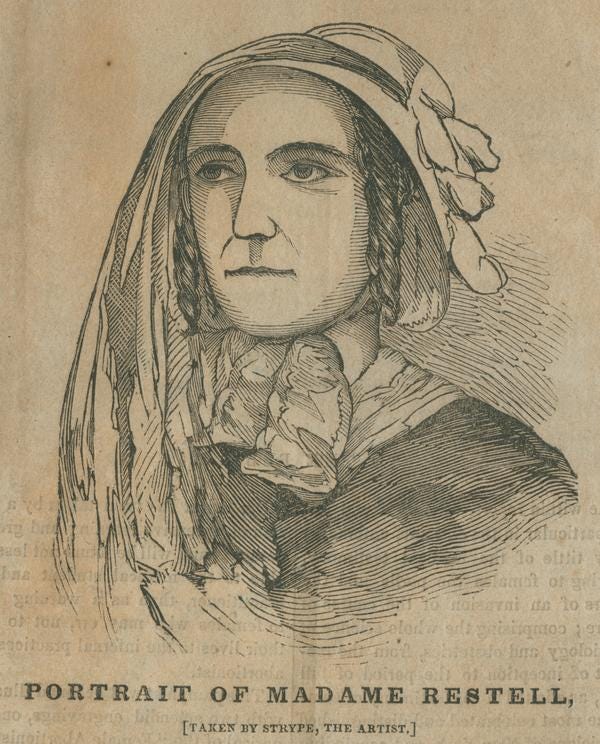New book on Madame Restell shows her persecution from law enforcement
Puritanical forces in 19th century targeted legendary abortionist
Madame Restell’s famous career as an abortionist has been explored several times by authors over the last few decades.
Restell, known as Ann Lohman, was a legendary figure in reproductive rights history. Throughout her career, she performed countless abortions on women who lived in and came to New York seeking her help. Part of her charm was the ostentatious and fashionable way she carried herself with pretty dresses and showy carriages.
There have been several works on her. Last year, I wrote about Jennifer Wright’s Madame Restell: The Life, Death, and Resurrection of Old New York’s Most Famous, Fearless, and Infamous Abortionist. As I reviewed it, Wright’s work reads more like a novel. It’s not academic at all in its tone.
Recently, Nicholas Syrett, a professor of women, gender, and sexuality studies at the University of Kansas, published another work, The Trials of Madame Restell: Nineteenth-Century America’s Most Infamous Female Physician and the Campaign to Make Abortion.
I spoke to Syrett about his work. He wanted to write it long before the Supreme Court overturned Roe v. Wade.
“Women's autonomy and the history of abortion are really always with us,” Syrett said. “So while it seems particularly timely now, I think that even just almost any time over the past 20 years or so it would have been timely.”
Syrett said Restell felt that abortion was part of more extensive work helping women. She delivered babies and sold contraception and emmenagogues. Newspapers at the time portrayed Restell as exploitative and as a profiteer.
“One of the lessons here is that the more that abortion gets separated out from those women's healthcare needs, the easier it is to demonize the care and to see doctors who perform abortions as being somehow more mercenary than other doctors who are providing all kinds of medical services,” Syrett said.
Syrett said that no one died in Madame Restell’s care.
“That certainly points to her skill to her sense of caring to her belief in what it was that she was doing,” Syrett said.
The media sensationalization was also apparent in Syrett’s depiction of her. The advent of the Penny Press was around that time, and with it a desire to appeal to the broadest possible audience.
“There were also other kinds of newspapers at the time what some have called the flash press that were particularly dedicated to like a sporting male culture of prostitution and drinking and gambling and so forth,” Syrett said. “And they ran stories that were even more sensationalized and even further divorced from the truth really.”
I enjoyed Syrett’s book as well as Wright’s. The story seems to lend itself well to both the stage and screen, so hopefully, a playwright or screenwriter takes up the challenge to put this on a page. I’m not sure who would own the film rights, given there have been multiple accounts written on Restell. But it’s something worth exploring in exposing this important part of abortion rights history to a wider swath of the public.





